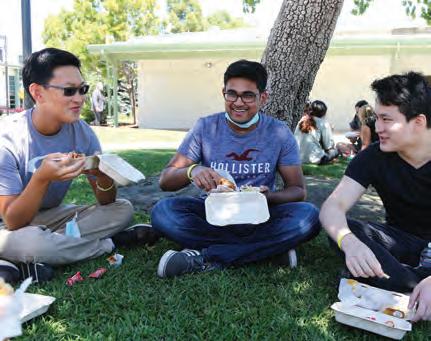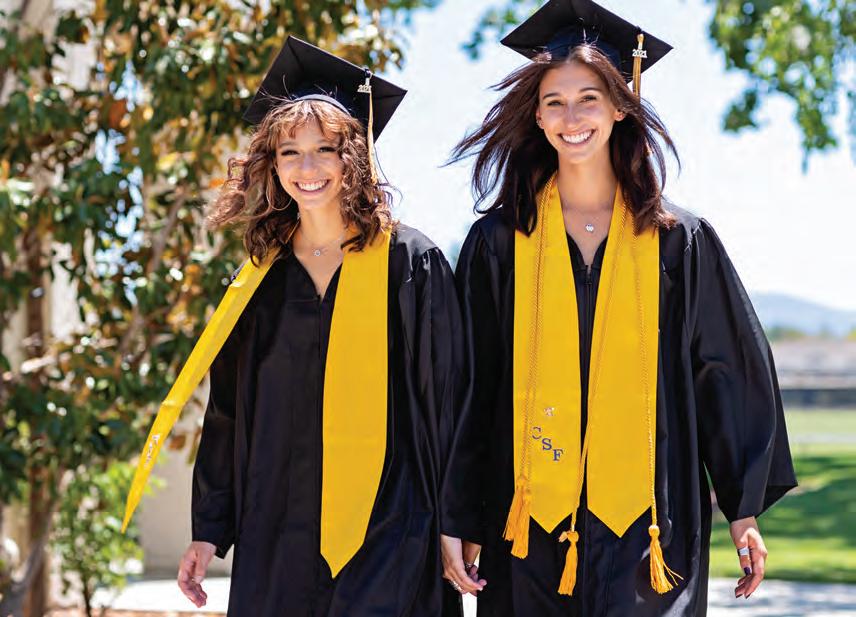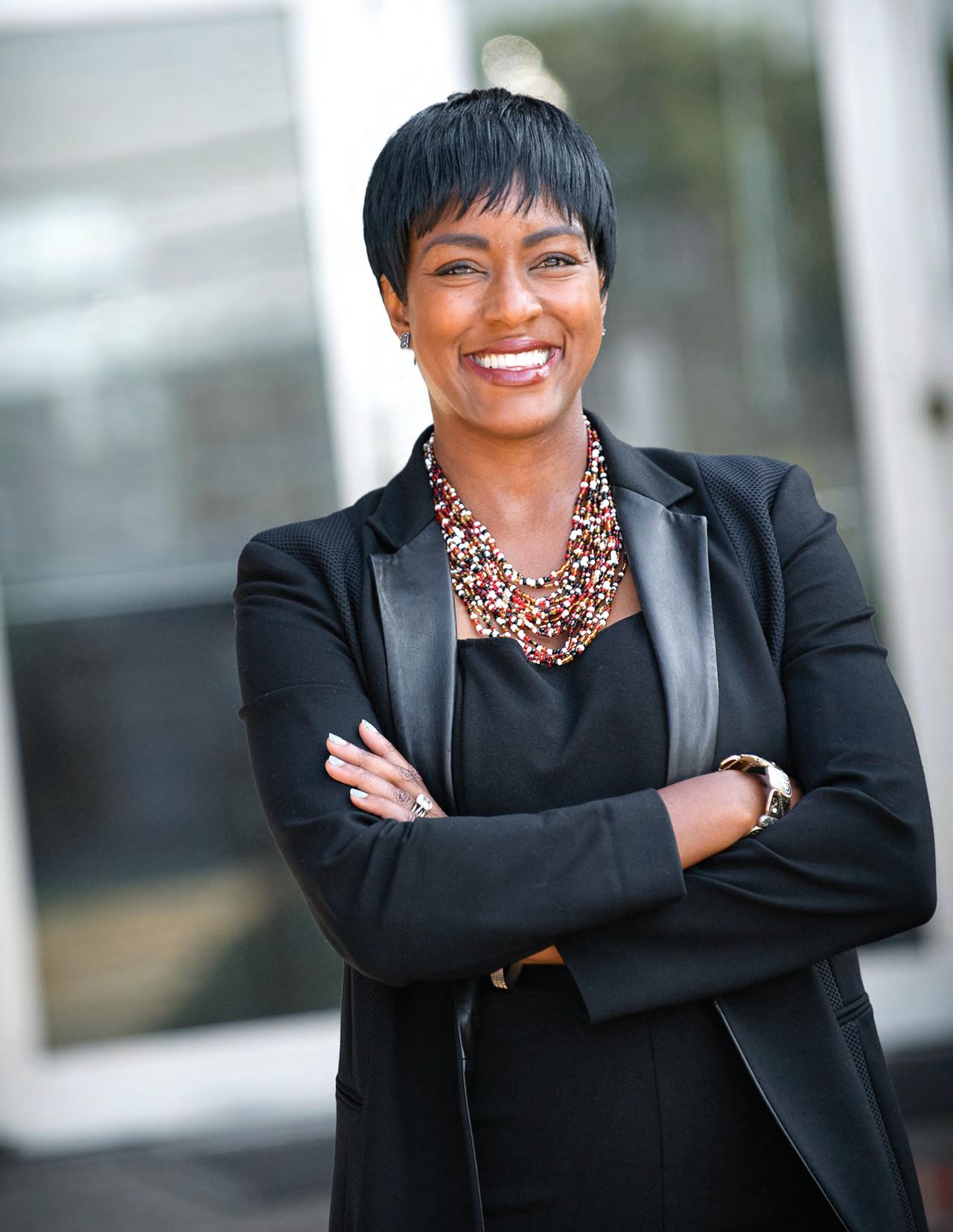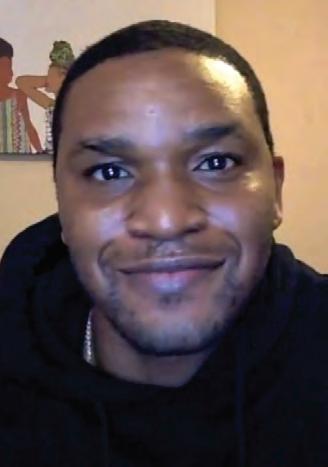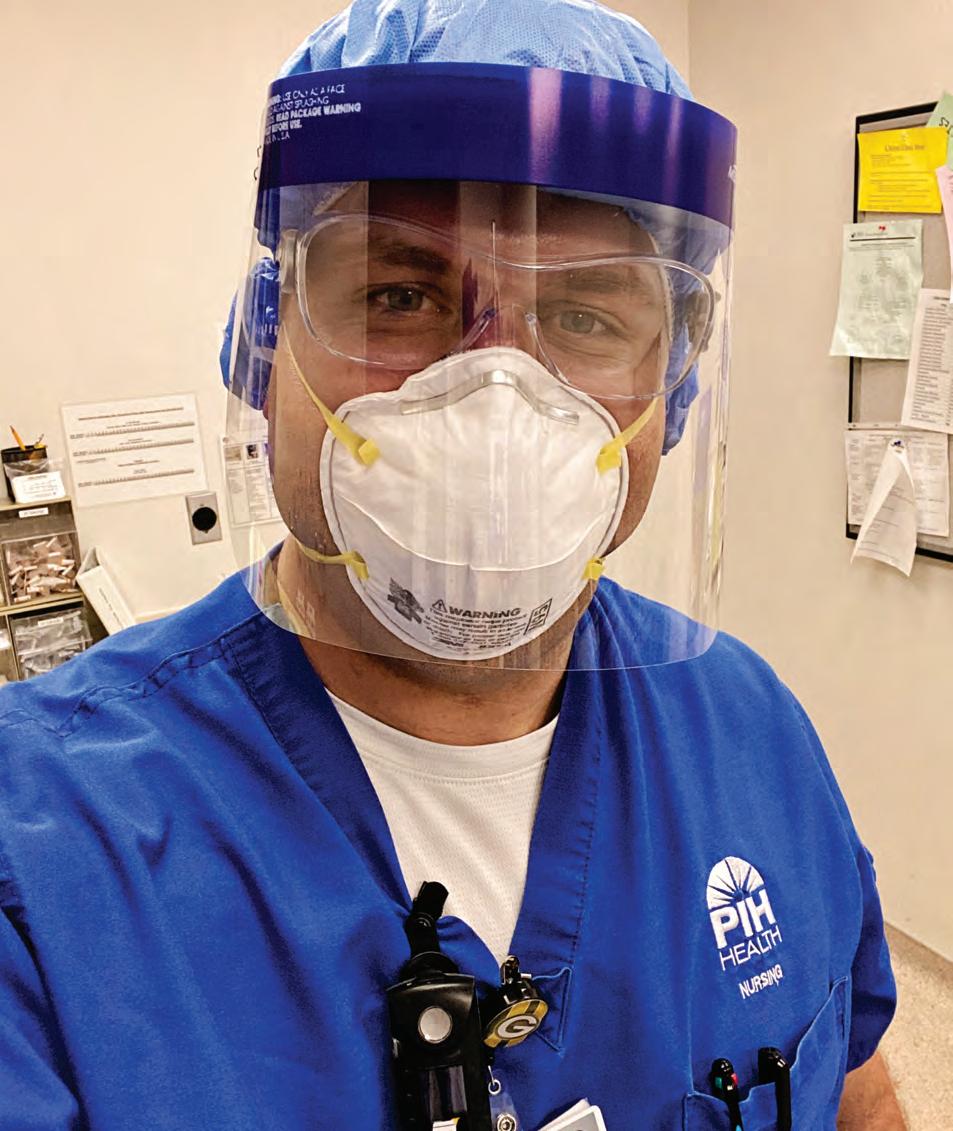
9 minute read
On the Front Lines
The Alumni Office caught up with Monarchs working as nurses, doctors, firefighters, and other first responders in the pandemic
By: Nicole Johnston ’14 - Interim Director of Alumni Relations
The COVID-19 pandemic made this past year and a half extremely hard. As we emerge from our homes and self-isolation into a new world, we look to those who have worked the front lines. During this strange time, people across the world turned to nurses, doctors, firefighters, and healthcare professionals, including many Monarchs, for help. This summer, Archbishop Mitty wanted to showcase a few of our alumni who have showed up for others and helped their communities this year. The Alumni Office caught up with five Monarchs, who took the time to answer questions about their day-to-day work before and after the start of the pandemic. Prominent in all their responses was how much these first responders care about helping others in need, as well as their willingness to sacrifice their health and time to make sure their communities are cared for properly.
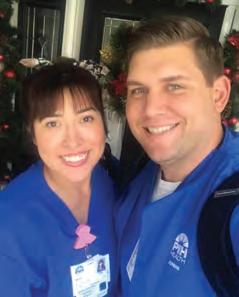
Kyle Hansen ’05
Kyle Hansen ’05
Post Surgical Unit Nurse in California Kyle Hansen ’05 started his nursing career at Presbyterian Intercommunity Hospital a month before the pandemic started. Before the post-surgical unit where he was working was transformed into a COVID-19 positive unit, Hansen and his wife were navigating his new profession, while both working night shifts and raising three kids. During the pandemic, stress levels were extremely high. The treatment plans for COVID patients were changing daily and keeping up with the latest guidelines was demanding. Through it all, Hansen’s unit made sure to give patients the best possible treatment.
“There were times we were able to celebrate a patient discharging home to their family. However, there were more times that my staff and I were the only people at the bedside of a dying patient,” Hansen said. “If the family was unable to make it to the hospital in time to say their last goodbyes, we attempted to Zoom with them and tried to ensure we were present for the patient and family.”
Working during the pandemic tested Hansen’s capabilities and turned him into a resilient nurse. He enjoys making connections with his patients, so even in their worst moments they feel like they have a family member at their bedside. Throughout his life, and especially this year, Hansen has relied on his support system and faith. Without them, he would not be in the position he is today, caring for people who need help.
Anissa Bonilla ’14
Emergency Room Nurse in Texas As a registered nurse in the emergency room at St. David’s Round Rock Medical Center in Texas, Anissa Bonilla ’14 sees different things every day, including heart attacks, strokes, and trauma. It takes a lot of teamwork from nurses and doctors to take care of the whole patient. Once Bonilla started in this field, she knew she had made the right decision because she loves being able to take care of people. A highlight of her career so far included solving a patient’s problem in a way which prevented him from needing an additional surgery.
“Nursing involves a lot of critical thinking so I was proud that I took the time to research and find a way to solve this patient’s problem and prevent them from going through the physical, emotional, and financial stress of another surgery,” Bonilla said.
Before the pandemic, Bonilla spent her days studying and having a social life, but all of that changed once COVID-19 hit. As a nurse, Bonilla had to take extra precautions. When she finished a shift, she wiped down her shoes and put them in a box in her car, changing into new clothes, so no germs would come home with her.
To prepare for her nursing career, Bonilla attended Southwestern University, where she studied kinesiology, which provided her with all the prerequisites for nursing school. Bonilla owes a lot of where she is today to her parents. They have always pushed her to be the best version of herself at school, on the softball field, and outside of the field and classroom.
Ayeetin Azah ’07,
Flight Surgeon, United States Navy Ayeetin Azah ’07 sees patients who are pilots, aircrew, and air traffic controllers. Her responsibilities range from diagnosing and treating conditions to promoting aviation safety. Azah also works to prevent potential aircraft accidents and investigates incidents, when they occur.
“The title ‘flight surgeon’ may be confusing because I don’t actually perform surgeries while flying,” she said. “Instead, I am a medical officer specially trained to provide medical care to the aviation community.”
Initially, Azah was stationed in North Carolina with an operational Marine squadron. When the pandemic started, her days turned into countless hours establishing risk mitigation strategies that would allow the squadron to continue its mission while reducing the risk of COVID-19 contraction and spread. During the pandemic, Azah was transferred to the Navy base in Bahrain. This was the first Navy base overseas to receive the COVID-19 vaccine. Azah was tasked with providing vaccine education, screening patients, and preparing for operations.
To get to where she is today, Azah applied for the Navy Health Professions Scholarship Program, which provided full financial support for medical school in exchange for four years of active service with the U.S. Navy. After graduation, Azah completed an internship in internal medicine at the Walter Reed National Military Medical Center. Eventually, Azah was selected to train at the Naval Aerospace Medical Institute where she earned her wings of gold and became a flight surgeon. A highlight of her career so far was being named the flight surgeon of the year by the Marine Corps Air Station at Cherry Point in North Carolina.
“As a female in a male-dominated field and as one of a handful of African American flight surgeons, to be recognized by leadership as an exemplary flight surgeon was truly an honor,” she said.
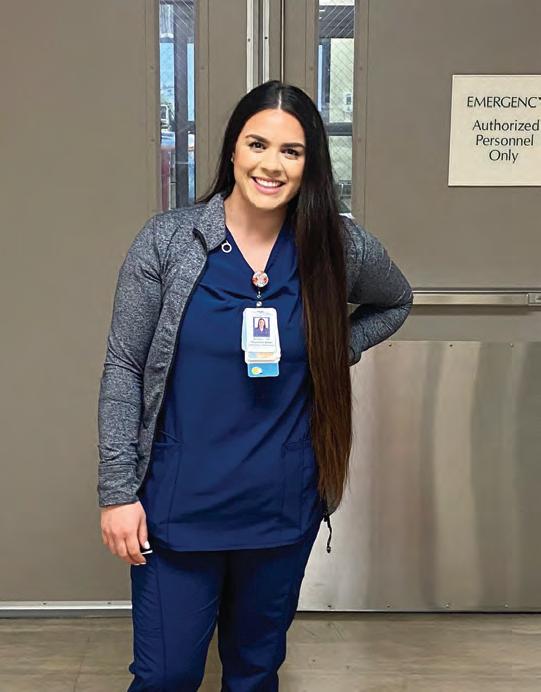
Anissa Bonilla ’14
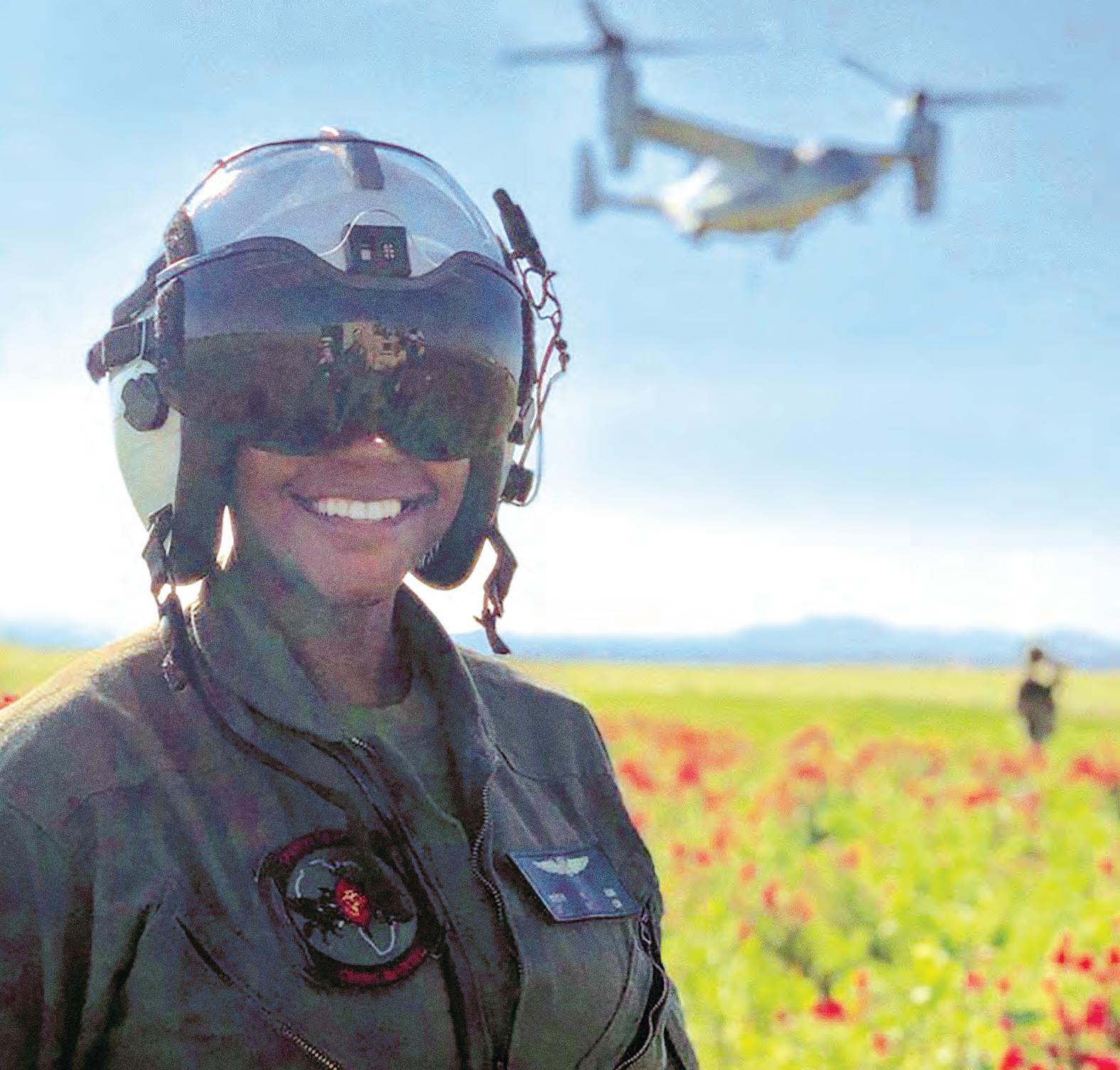

Ayeetin M. Azah ’07
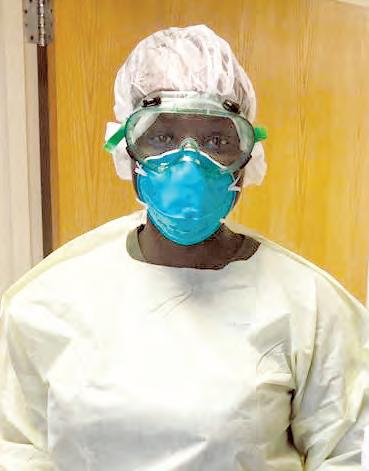
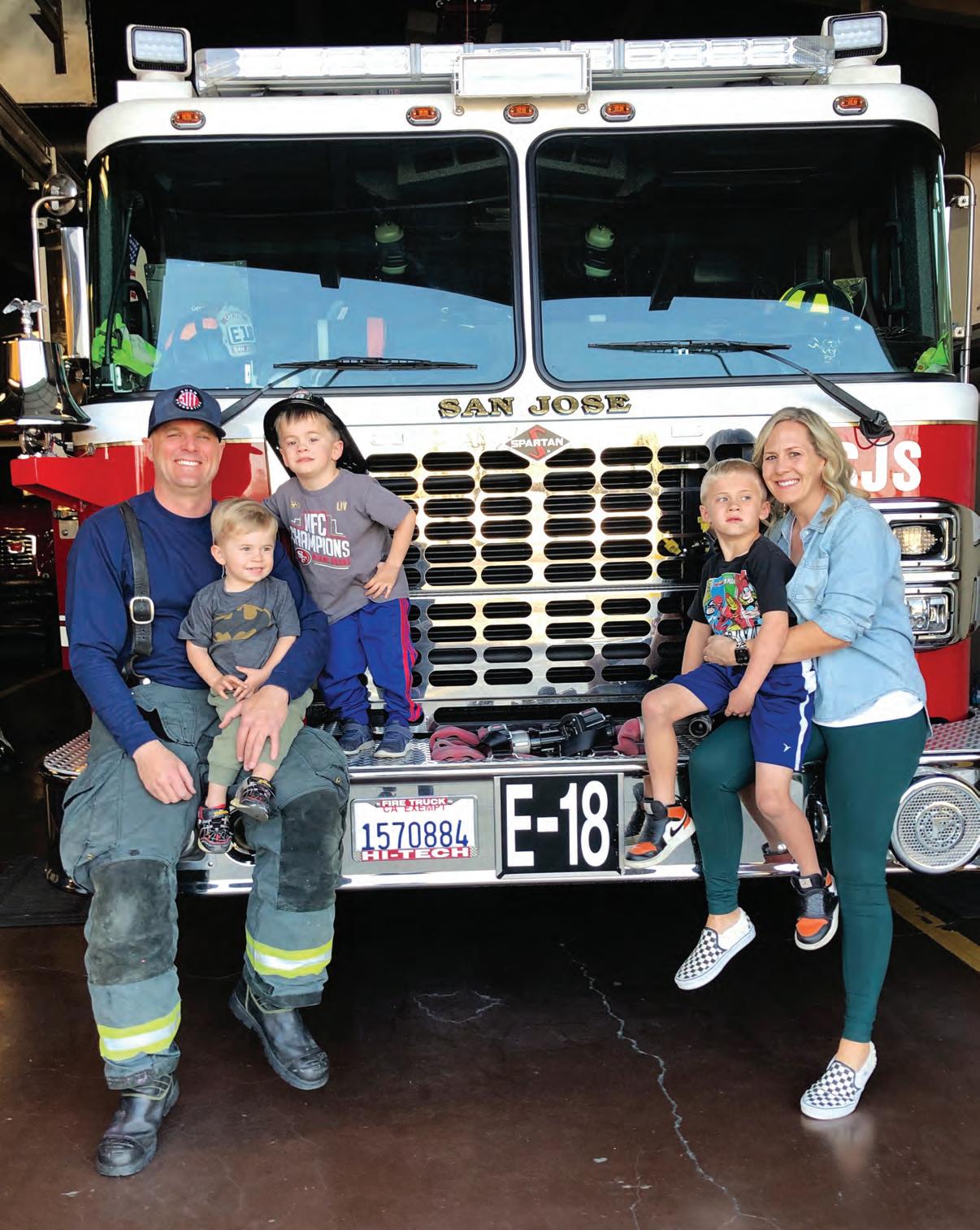
Casey Brosnan ’00
What advice would you give to others interested in your career?
“Work hard. In the end, it will be worth it. A lot of hours and time will go into studying and you will feel like the stress consumes you, but once you finish and you get to do your dream job, it will all be worth it.” - Anissa Bonilla ’14
“Nursing is extremely challenging on a daily basis, yet it is also extremely rewarding at the same time. Be thankful for the opportunity to care for another person’s well being. Be compassionate, and be an advocate for the patient and family.” - Kyle Hansen ’05
“Remain flexible. The most important thing to remember is to bloom where you are planted. In any situation, there is a silver lining... Don’t let the moment go to waste.” - Ayeetin Azah ’07
“Get a solid education and take all the fire science classes... I would also strongly suggest getting some experience as an EMT on a 911 ambulance prior to being hired.” - Casey Brosnan ’00
“There are so many possibilities being a nurse brings, experience them all and find what fits you best.” - Amanda (Ramar ’98) Giordano
Casey Brosnan ’00
Fire Engineer, San Jose Fire Department Casey Brosnan ’00 began his career as a first responder by working as a paramedic. In 2012, he was hired as a firefighter by the San Jose Fire Department. Brosnan truly believes his job is a calling. Today, he drives fire engines and is responsible for providing the water supply to teams at fires.
In a single 24-hour period, the San Jose Fire Department responds to an average of 15 calls. Before the pandemic, the majority of these calls were medical-related, but firefighters also responded to structure, car, and wildland fires, as well as vehicle accidents and hazardous material incidents. During the pandemic, things weren’t too different from the normal operations.
“San Jose Fire Department is a very regimented department that thrives, even in the face of adversity, because the department instills values of discipline and pride,” Brosnan said. “We do, however, wear much more personal protective equipment now in the forms of goggles, respirators, and gowns.”
A highlight of his career so far was when he brought a man back to life just before they reached the hospital. A few months later, the man came to the station and thanked Brosnan and his team for saving his life.
Amanda (Ramar ’98) Giordano
Patient Care Manager, Stanford Health Care In Giordano’s current role, she manages 46 registered nurses and is the chair of a medical emergency review committee. Giordano oversees teams that work 12-hour shifts. She checks that the day and night shifts feel supported and are implementing any practice changes.
“My team is amazing,” Giordano said. “They embody everything nurses stand for, putting the needs of their patients before their own... Having the opportunity to support them as they fight the fight from the front lines is incredible, and I wouldn’t change a thing.”
During the pandemic, Giordano’s daily tasks did not change, but the way she approached them did. Nurses were required to wear the appropriate personal protective equipment to protect themselves from potential exposure to COVID-19, as teams were called to handle cases, sometimes with no time to review the patient’s chart or COVID status. She also worked with nurses to minimize burnout.
Giordano started her career as a registered nurse in the University of California San Francisco’s neuro-intensive care nursery. From there, Giordano worked with top researchers and earned a master’s degree at the Philip R. Lee Institute for Health Policy Studies. Giving back has always been a part of Giordano’s life, and the ability to care for people when they need it most is a highlight of her career.

Amanda (Ramar ’98) Giordano




